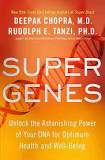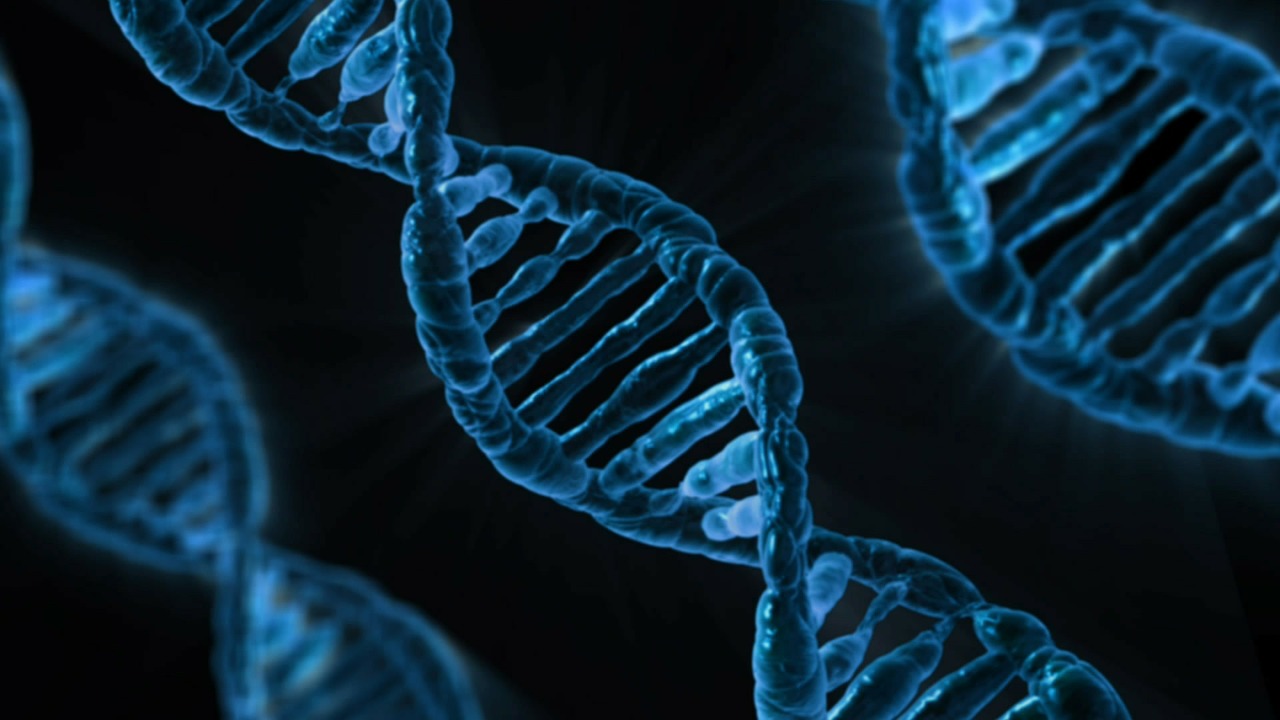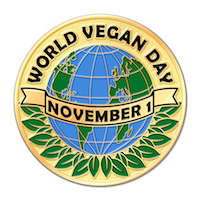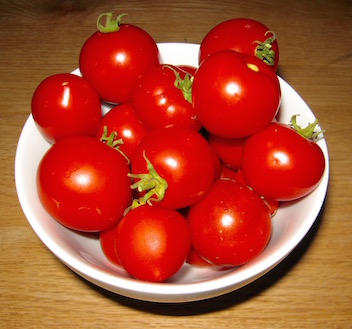
by plant4health | May 3, 2016 | Nutrition, Organic, Plant-based, WFPB, Whole food, plant-based
Pregnant women need to pay special attention to their diet to be sure they are eating nutritious foods and avoiding added fats, sugar, alcohol, caffeine and toxins. A 100% whole food, plant-based diet that emphasizes organic food, along with a prenatal vitamin and vitamin B12, is perfectly safe for mother and baby. In fact, this diet helps women avoid toxins from eating fish contaminated with mercury and the antibiotics, hormones and saturated fat found in meat products. It also may help prevent many of the problems pregnant women on the Standard American Diet face. This includes preeclampsia, gestational diabetes, and large babies who cannot fit through their mother’s birth canal and must be delivered via Caesarian Section.
(more…)

by plant4health | Nov 22, 2015 | Epigenetics, Healing, Nutrition, Organic, Whole food, plant-based
Dr. Deepak Chopra, M.D., author of 80 books and co-founder of the Chopra Center for Well-Being and founder of the Chopra Foundation, recently spoke in Los Altos Hills, CA about his new book, Super Genes, which he co-wrote with Rudolph Tanzi, PH.D. Here is a brief summary of his presentation embellished with information from the book, noted in quotes.
Super genes are your body’s self-regulating building blocks, which are constantly sending instructions to your body. The super genome consists of three components: genome, epigenome and microbiome.
- Genome: you have 23,000 genes in your body and 100 trillion cells – more cells than all the stars in the Milky Way galaxy! A gene is a unit of heredity and carries memories of a cosmic nature spanning 14 billion years.
- Epigenome: a sheath of proteins that encloses DNA. It is a switching mechanism that enables your cells to respond to your experiences. Epigenetics is the study of gene expression influenced by external factors and your environment. Examples include environmental toxins, stress, diet, relationships and even your thoughts and emotions. Every experience you have makes your genes express themselves. Negative emotions like fear, guilt, and shame cause the self-regulation to get disrupted and that can result in illness.
- Microbiome: colonies of bacteria that line your gut and can be found on your skin. There are trillions of them in your body, over 2,000 species. Bacteria is essential to humans and makes digestion possible.
(more…)
![FACT: Our genes DO NOT dictate our health]()
by plant4health | Nov 19, 2015 | cancer, Healing, Nutrition, Organic, Plant-based, Vegan, WFPB, Whole food, Whole food, plant-based
 We’ve all heard it many times, “Breast cancer runs in my family”, “It’s no surprise I have heart disease since my father and his father before him did,” or “Everyone in my family has high blood pressure, so I’m sure I will too.”
We’ve all heard it many times, “Breast cancer runs in my family”, “It’s no surprise I have heart disease since my father and his father before him did,” or “Everyone in my family has high blood pressure, so I’m sure I will too.”
We accept the “diseases of old age” (cancer, cardiovascular disease, high blood pressure, diabetes, arthritis, etc.) as inevitable based on our family history, believing that our genetics predetermines our health.
Thank goodness this belief has been scientifically proven false!
We actually have a significant amount of control over our health as we age – yes, even over our DNA. This news is very empowering!
Our genes do not cause disease. We’ve been taught that our DNA provides a predetermined script of who we are; hair and eye color, shape of our face, height, etc. Thanks to the findings from the Human Genome Experiment (2003), science has identified which genes are associated with specific diseases. From this data, scientists had theorized that if your DNA consisted of a certain gene, then you would develop the disease that gene represents. (more…)
![FACT: Our genes DO NOT dictate our health]()
by plant4health | Nov 1, 2015 | Organic, Sustainability, Vegan, Vegan restaurants, WFPB, Whole food, Whole food, plant-based
 Today is World Vegan Day and the beginning of World Vegan Month. Five years ago, on November 1, 2010, I switched from being a long time vegetarian (nearly 20 years) to a 100% whole foods, plant-based diet. Although it can be challenging at times to follow an organic plant-based diet, it is so much easier now than even five years ago. Here are five reasons why I continue to follow this plant-based diet and lifestyle:
Today is World Vegan Day and the beginning of World Vegan Month. Five years ago, on November 1, 2010, I switched from being a long time vegetarian (nearly 20 years) to a 100% whole foods, plant-based diet. Although it can be challenging at times to follow an organic plant-based diet, it is so much easier now than even five years ago. Here are five reasons why I continue to follow this plant-based diet and lifestyle:
1. Health:
Scientific studies continue to support the benefits of a whole food, plant-based diet. Just last week the World Health Organization’s International Agency for Research on Cancer cautioned “the consumption of red meat as probably carcinogenic to humans and processed meat as carcinogenic to humans.” A whole food, plant-based diet has helped people reverse cancer – see my brother-in-law’s story about beating prostate cancer – as well as reverse heart disease and Type 2 diabetes. I have a family history of cancer, heart disease, stroke and diabetes, so I take comfort in knowing I’m doing what I can through my diet, regular exercise, plenty of sleep and daily meditation to reduce my risk of chronic health problems. (more…)

by plant4health | Oct 15, 2015 | cancer, Healing, Nutrition, Organic, Plant-based, Recipes, Vegan, WFPB, Whole food, Whole food, plant-based
 Eating a variety of whole plant-based foods is essential for healing and maintaining excellent health. Science is now discovering that some foods, when eaten together, increase the effects of their individual nutrients, providing even greater health benefits. This is called food synergy. Last month I wrote about lemons. Today, it’s all about tomatoes.
Eating a variety of whole plant-based foods is essential for healing and maintaining excellent health. Science is now discovering that some foods, when eaten together, increase the effects of their individual nutrients, providing even greater health benefits. This is called food synergy. Last month I wrote about lemons. Today, it’s all about tomatoes.
It’s well known that tomatoes are an excellent source of antioxidants: beta-carotene, vitamin E, and vitamin C. But did you know that they are also rich in potassium and a very good source of copper, manganese, dietary fiber, vitamin B6, folate, niacin, and phosphorus? And have you heard that tomato peels contain all four major carotenoids that help protect your body from cancer? When tomatoes are cooked, the lycopene (one of the major carotenoids that lowers the risk of cardiovascular disease and certain cancers) becomes even more bioavailable, increasing the amount your body can absorb.
What’s even more amazing is that when tomatoes are combined with cruciferous vegetables, avocados or olive oil, a synergistic effect occurs that enables your body to more easily absorb and use those powerful anti-cancer and healing nutrients.
Tomatoes and Cruciferous Vegetables – Individually, tomatoes and cruciferous vegetables (broccoli, cauliflower, cabbage, etc.) contain cancer-fighting properties, each food providing distinctive bioactive compounds that fight cancer in different ways. Research has discovered that, when tomatoes and cruciferous vegetables are combined, cancer fighting properties of each are significantly enhanced as the carotenoids in tomatoes increase the bioactive components found in the vegetables. One study at the University of Illinois focused on the synergistic effect of broccoli and tomatoes. They discovered that the tumor-inhibiting effects are significantly enhanced when broccoli and tomatoes are eaten together. It has also been found that chopping and then heating the vegetables makes the cancer fighting compounds even more active. The cutting process breaks the cells and activates an enzyme that initiates a cellular process that results in increased cancer protection. And, as I mentioned in last month’s Lemon Synergy blog, adding a little lemon juice to broccoli increases that enzyme activity. However, be careful of overcooking cruciferous veggies as it results in decreasing their nutrient power. It’s best to steam or sauté lightly.
Try these simple recipes:
Tomatoes and Avocados or Olive Oil – Science has proven that lycopene is fat soluble. As a result, consuming healthy fats with tomatoes increases your body’s absorption rate of the lycopene. According to a study from Ohio State University, when tomatoes are eaten along with avocados or olive oil, the body’s absorption of lycopene is increased up to 15 times. In addition, in 2000, a study in Free Radical Biology and Medicine revealed that, when people consumed tomato products with extra-virgin olive oil versus sunflower oil, researchers discovered that olive oil raised the antioxidant activity of the lycopene in tomatoes. However, consuming sunflower oil produced no effect.
Try these simple recipes:
- Food.com’s Simple Tomato and Avocado Salad
- Add tomatoes and avocado to your salad or use olive oil in your dressings
- Roast or sauté tomatoes with onion and red bell pepper and a little olive oil, garlic, Italian herbs and sea salt. Once cooked, blend in a food processor or blender until the desired consistency then serve over pasta or your favorite grain. Ta da! You’ve got a delicious, high powered nutritious sauce to go with your meal.
Next time you go grocery shopping, don’t forget your tomatoes.
![FACT: Our genes DO NOT dictate our health]()
by plant4health | Oct 1, 2015 | cancer, Organic, Plant-based, Vegan

Laurel J. Standley, Ph.D.
Laurel J. Standley, Ph.D. is Principal of Clear Current LLC. She is an environmental consultant with over twenty years experience in environmental chemistry and policy. Dr. Standley earned a B.S. in Chemistry from California Polytechnic State University, a Ph.D. in Chemical Oceanography from Oregon State University and a M.A. in Urban Affairs and Public Policy from the University of Delaware. In 2011, she published a book called #ToxinsTweet: 140 Easy Tips to Reduce Your Family’s Exposure to Environmental Toxins. This is part one of a two part series summarizing key points from her book.
We are exposed to chemical toxins every day that can impact our health. Exposure comes from the air we breath, food we ingest, water we drink or cook with, cosmetics we put on our skin, the furniture we sit or sleep on and even our clothing. We can’t avoid all toxins but can take steps to reduce our risk of exposure.
What are toxins?
(more…)






